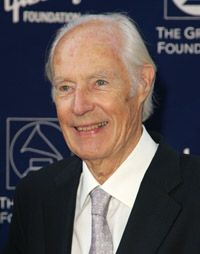When the Notorious B.I.G.'s "Born Again" album was released in 1999, a lot of the credit went to executive producer Sean "Puffy" Combs. B.I.G., after all, had been dead for almost three years, the victim of a drive-by shooting in Los Angeles. Combs created the rapper's third album by arranging some of his unheard rhymes and adding guest spots by well-known artists including Missy Elliott, Ice Cube and Snoop Dogg. In Combs' arrangements, B.I.G. starts off most of the tracks, and then the guest artist takes over [sources: Vladimir Bogdanov, Chris Woodstra and Stephen Thomas Erlewine].
Music journalist Chris Charlesworth is credited as executive producer for re-released versions of The Who's albums because he suggested that the group produce a retrospective box set that led to several more. Charlesworth had never produced an album, but he wound up selecting additional tracks, writing text for liner booklets, working on cover concepts and shepherding the music production process [source: Richard James Burgess].
Advertisement
In contrast, Peter Grant was credited as executive producer on every Led Zeppelin album, while he was actually the group's manager and didn't contribute to the song writing, arranging or producing.
As you can see from these examples, executive producers -- even working in the same area of the entertainment industry -- don't necessarily share the same responsibilities. They may have overall responsibility for nearly everything, handle a specific area of the project or have no greater responsibility than funding the project, providing support or lending their name to boost publicity and sales.
So what is an executive producer? How does a music producer differ from a motion picture producer or a television producer? And how does someone become an executive producer? Keep reading to find out.
Advertisement





